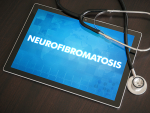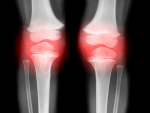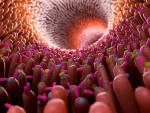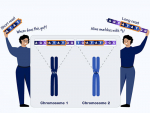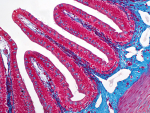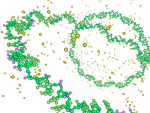Displaying items by tag: department of genetics
Tagged under
Tagged under
Researchers found 19 Bacteroides vulgatus genes that were unique to three strains that show early engraftment in patients after a fecal transplant, as opposed to seven strains that did not show early engraftment. Most transplant failures occur in the first four weeks.
Tagged under
Cure HHT has named the HHT Clinic at UAB Hospital a Center of Excellence. Only hospitals equipped with the proper personnel, expertise, commitment and resources to provide comprehensive evaluation, treatment and education to individuals with HHT and their families receive this designation.
Tagged under
Anindya Dutta, Ph.D., David Kimberlin, M.D., and Alan Tita, M.D., Ph.D., were elected to join the Association of American Physicians.
Tagged under
Description of this mechanism offers a promising therapeutic target to limit lung injury and death. Lower respiratory tract infections, including bacterial pneumonia, are the fourth-leading cause of death worldwide, with 120 million to 156 million cases and 1.4 million deaths a year.
Tagged under
AGHI is partnering with the UAB Department of Family and Community Medicine to aid research, patient care and insight on using the genomic sciences in primary care.
Tagged under
The 10th annual Rare Disease Genomics Symposium will take place virtually March 10 from 8:30 a.m.-3:30 p.m.
Tagged under
The UAB-led consortium, begun in 2006, has expanded to 24 clinical sites and conducted 18 clinical trials.
Tagged under
The first large multi-ancestry genetics study of osteoarthritis, or OA, has found 10 novel OA-associated genetic loci, and results showed some of the OA-associated regions are robustly found in every population ancestry studied.
Tagged under
- release
- school of medicine
- department of medicine
- department of surgery
- department of cell developmental and integrative biology
- division of pulmonary allergy and critical care medicine
- school of public health
- department of epidemiology
- department of genetics
- department of biostatistics
- public health research
Terry also won the Social Change, Talent and Spirit awards, earning a total of $3,300 in scholarships.
Tagged under
- release
- student affairs
- honors college
- collat school of business
- college of arts and sciences
- school of medicine
- school of education
- bioinformatics
- department of genetics
- department of accounting and finance
- department of kinesiology
- department of biology
- department of chemistry
- department of computer science
- department of human studies
- alys stephens center
- students
This finding suggests utility of treatments before fecal microbial transplants to reduce recipient microbial communities. This would help donor microbial strains dominate in the recipient.
Tagged under
The clinically approved drug ruxolitinib suppressed a mouse model of melanoma that is resistant to immune checkpoint blockers.
Tagged under
Supporting on-campus housing for Birmingham Promise scholars would enhance the well-rounded collegiate experience students aim to receive while at UAB.
Tagged under
This novel mode of altering gene silencing boosts the unfolded protein response pathway in the cancer cells, helping those cells survive during rapid growth.
Tagged under
An absence of sub-strain variation over a short period was seen in sick patients, which may signal impending gut dysbiosis.
Tagged under
New technologies are filling in gaps in the human genome and opening major areas for discovery. UAB researchers explain the pros and cons and how they are using long reads at UAB.
Tagged under
Researchers show how two types of immune cells — one a part of the innate immune system and the other a part of the adaptive immune system — play distinct and indispensable roles in the colon to defend against pathogenic bacteria.
Tagged under
The grant will fund research surrounding next-generation human models that could potentially aid in the development of treatment for glioblastoma.
Tagged under
Anindya Dutta, M.D., Ph.D., and colleagues now have detailed the first structure-function study of this long non-coding RNA.








